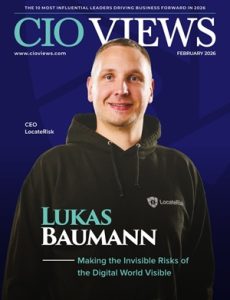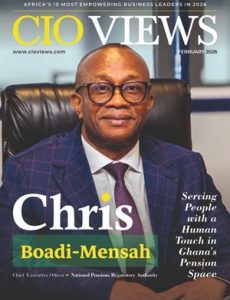Mariam Khosravani, Founder of the Iranian American Women Foundation, reflects on her perspective on success by stating, “The definition of success is deeply personal and ever-changing,” thereby emphasizing the personal and evolving nature of the concept. She underscores the importance of aligning one’s definition of success with personal values, emphasizing that it should bring a sense of fulfillment and happiness.
In Mariam’s view, success transcends mere material wealth or social status. Instead, it revolves around leading a meaningful and content life, as well as the positive impact she or her work has on others and the community. She expresses her measure of success with a focus on making a difference in the lives of others, stating, “How many lives I have touched and if I am able to make a difference for anyone. That by itself is a success to me.”
A Transformative Journey Charting Paths of Empowerment
Mariam shares insights into her career beginnings and the inspiration behind her venture into non-profit work. Reflecting on her early career, she notes, “My work at the college was really the beginning of my career, and while I was working, I was also involved with so many charities locally and nationally which helped me to find my passion for non-profit work.”
Describing the Iranian American Women Foundation (IAWF), Mariam explains that the mission of the Iranian American Women Foundation is to provide a platform for empowerment and networking among Iranian-American women and to provide mentorship to younger generations locally and globally. She goes on to detail the foundation’s contributions, stating, “Since 2012, the Iranian American Women Foundation (IAWF) has been empowering and inspiring Iranian American women of all ages and career paths through its nationally recognized annual Women’s Leadership Conferences.”
Regarding her role in the growth and success of the Iranian American Women Foundation, Mariam credits her expertise as the Executive Director of Coastline College Foundation. She recalls, “My expertise as the Executive Director of Coastline College Foundation was instrumental. I chose that profession because I witnessed firsthand how a college can transform a student’s life, paving the way for their success.”
Mariam emphasizes the impact of scholarships on students and expresses, “One of my responsibilities at the college foundation was to raise scholarships for our students. The joy and gratitude on their faces during our annual scholarship ceremony are unforgettable. We provided more than just financial assistance; we gave them hope.”
Additionally, Mariam highlights her extensive experience serving on non-profit boards in the U.S. over the past 25 years. She notes, “Over the past 25 years, I have served on the boards of several non-profits in the U.S. I have gleaned invaluable insights from each board, recognizing the significance of their contributions to the community.” Mariam observes that these experiences shaped her vision for the IAW Foundation and guided both her and the organization to its current esteemed position within the community.
“Yesterday I was clever, so I wanted to change the world. Today I am wise, so I am changing myself.” – Rumi
Successful Governance and Impact Measurement in Nonprofit Leadership
Discussing the topic of nonprofit governance and success measurement for her organization, Mariam notes that all nonprofit organizations have a Board of Directors who govern the organization and are legally responsible for the organization. Emphasizing the importance of clear objectives before assessing success, she explains, “Before measuring success, the organization must have clear, well-defined objectives.” These objectives, ranging from increasing women in leadership to providing training and mentorship, serve as benchmarks.
Mariam details the tracking process: “We track the number of women who attend workshops, seminars, and training sessions. A growing number indicates heightened interest and engagement.” Personal stories and testimonials are also collected, providing insight into the tangible impact of the organization. Furthermore, she highlights the use of surveys to evaluate participant satisfaction and program effectiveness: “In addition, we conduct surveys to gauge participant satisfaction, areas of improvement, and the overall perceived value of programs.”
Underscoring the importance of adaptability, Mariam notes, “It is very important for a nonprofit organization to measure how it adapts to challenges, whether they be financial, societal, or internal.” She sees an organization’s resilience as a key indicator of its sustainability and success, stating, “An organization’s resilience, especially in the face of adversity, is a strong indicator of its sustainability and success.”
Expressing her belief in the multifaceted nature of success for a nonprofit focused on women’s leadership, Mariam concludes, “I believe success in a not-for-profit geared towards women’s leadership is multifaceted. It’s crucial to adopt a holistic approach, combining both hard data and personal stories, to truly gauge the impact effectiveness of the organization’s efforts.”
Empowering Through Challenges: Insights into Leadership and Recognition
As the head of a women’s leadership organization, Mariam reflects on challenges within the context of her organization, observing, “As the head of a women’s leadership organization, I’ve seen firsthand how challenges, while daunting, often serve as catalysts for growth, resilience, and empowerment. Challenges force us to confront our vulnerabilities, pushing us out of our comfort zones.”
Mariam acknowledges the additional layer of complexity that challenges bring for women in leadership roles, saying, “For women, especially those in leadership roles, challenges often come with an additional layer of complexity due to societal expectations and stereotypes.” She highlights how these multifaceted challenges have shaped influential women leaders, noting, “But it’s precisely these multifaceted challenges that have shaped some of the most influential women leaders of our time.”
In discussing her organization’s experiences, Mariam shares, “In our organization, we’ve witnessed countless stories of women who, when faced with adversity, not only rose to the occasion but also paved the way for others.” She describes how challenges, whether professional, personal, or societal, became stepping stones for these women, propelling them to greater heights. She concludes, “So, I guess challenges DO make us stronger.”
Addressing the difficulties of thriving as a leader in the industry, Mariam notes, “Leading a large organization with diverse members and chapters can indeed be demanding no matter if it is a not-for-profit organization or not.” She finds fulfillment in positive feedback and tangible impact, stating, “Receiving positive feedback and hearing about the tangible impact our organization has on its members is incredibly gratifying.” Mariam expresses that contributing to the personal and professional growth of those they serve is the most fulfilling aspect of leadership and the best recognition she receives.
Fostering Personal Empowerment, Gender Equality, and Nurturing Future Leaders
Mariam discusses legal frameworks impacting gender equality and women’s empowerment, emphasizing the dual nature of the lack of empowerment, “The lack of empowerment can be both an equality issue and an equity issue, depending on the context and the specific challenges faced by individuals or groups,” she says.
Mariam illustrates examples, saying, “Sometimes there are barriers that prevent women from accessing education or entering the workforce on an equal basis with men, this is primarily an equality issue. And sometimes, a particular ethnic or racial group has faced historical discrimination and is significantly less empowered in terms of access to economic opportunities, or education, and that is an equity issue which needs to be addressed.”
When it comes to her personal goals, Mariam draws inspiration from the wisdom of the great Persian poet, Rumi: “Yesterday I was clever, so I wanted to change the world. Today I am wise, so I am changing myself.” Regarding personal and collective empowerment, she shares her approach, stating, “I usually empower myself by understanding my strengths, weaknesses, values, and goals. I learned that Self-awareness is the foundation of personal empowerment.”
Mariam expresses her desire to empower women around her by actively listening, showing empathy, and offering resources. She believes in celebrating the achievements of others to empower them to believe in themselves and reach their full potential. In her quest for personal empowerment and uplifting others, she turns to the profound words of Rumi: “What you seek is seeking you.”
Discussing her impact on the next generation of leaders, Mariam highlights the mentorship programs at the IAW Foundation, saying, “At our organization, IAW Foundation, we offer mentorship programs to our younger generations of community members and provide guidance, advice, and encouragement to them.” She underscores the importance of teaching empathy, kindness, and compassion, stating, “I also think teaching the importance of empathy, kindness, and compassion towards others is very important to have for any leader.”
“What you seek is seeking you.” – Rumi
Creating Harmony in Leadership and Work-Life Balance with Passion and Persistence
On maintaining balance in her life, Mariam shares a quote from Rumi, “If the light is in your heart, you will find your way home.” Reflecting on the challenge of work-life balance, she admits, “This is a question I asked speakers at our conferences, and I hear different answers from each speaker. I wish I could say I maintain a balance between my personal and professional life, but I am still struggling to find that balance. I think it is all about our priorities in different stages of our lives.”
Describing her driving forces, Mariam states, “What drives me is my passion, and what made me successful in what I do is persistence, so I guess these two words really define me.” When asked about personal goals, she reveals, “My personal goal is to have harmony in life and appreciate what I have and don’t have!” In her message for aspiring leaders, Mariam once more shares Rumi’s wisdom, “Raise your words, not voice. It is rain that grows flowers, not thunder.” Her advice is concise but impactful: “My message to aspiring leaders is to lead with compassion.”
In the intricate tapestry of leadership and life, Mariam Khosravani emerges as a beacon of resilience, driven by her unwavering passion and persistent spirit. Through candid reflections on work-life balance, personal definitions, and empowering others, her journey unfolds as a testament to the ongoing pursuit of harmony.
Mariam’s words resonate as a guidepost for aspiring leaders, emphasizing the importance of compassion and a keen awareness of priorities in the ever-evolving stages of life. In defining herself through the lens of passion and persistence, Mariam Khosravani embodies the essence of a leader navigating the complexities of both personal and professional realms, leaving an indelible mark on the landscape of empowerment and leadership.
“If the light is in your heart, you will find your way home.” – Rumi





